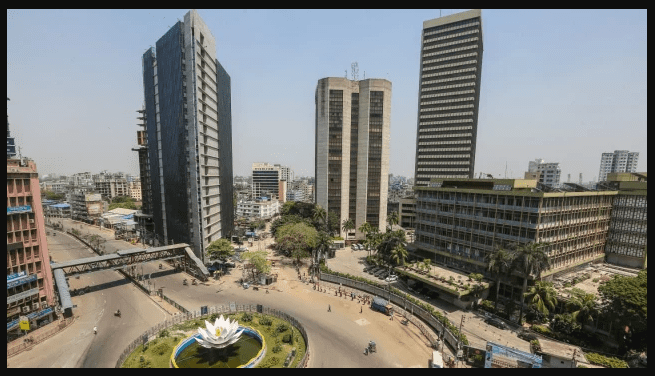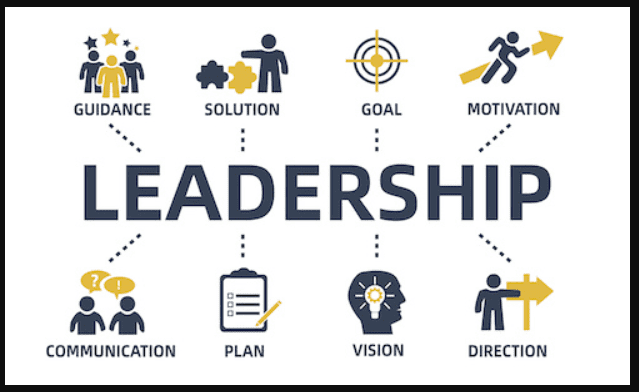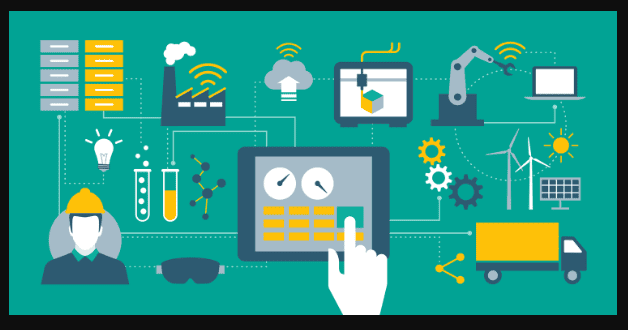
Powered by Froala Editor
Exporting manpower is harmful for our country
Powered by Froala Editor
Exporting manpower! It's a big issue that's got people thinking about how it impacts our country.
When we send our skilled workers to other countries for jobs, it can cause some problems back home. We're losing out on talent that could be helping our country grow and develop. Just imagine if all our doctors, engineers, and other skilled workers decided to leave – who would be left to build and improve our country?
Not only that, but when someone leaves to work in another country, it can be tough on their family and loved ones. Even if they're sending money back home to help out, it's not the same as having them around.
And let's not forget about the brain drain. When our brightest minds leave to work abroad, we're missing out on their skills, ideas, and innovation. That's not good for the future of our country.
Exporting manpower isn't all bad. For some people, it's a chance to escape poverty and make a better life for themselves and their families. And the money they send back home can actually help boost our economy and improve living conditions for everyone.
Powered by Froala Editor

Powered by Froala Editor
Equal employment opportunity for women can create social problems
Powered by Froala Editor
Equal employment opportunities for women. Now, you might think that giving women the same chances as men in the workforce is all sunshine and rainbows, but there are some people who worry it could actually stir up some social problems.
When women have the same opportunities as men to snag those jobs and climb the career ladder, it can sometimes ruffle a few feathers. Some people might feel threatened by the idea of women breaking into traditionally male-dominated fields or taking on leadership roles.
Equal employment opportunities for women aren't about taking anything away from men – they're about leveling the playing field and giving everyone a fair shot. When women are able to work and earn a living just like men, it benefits everyone. Families have more income, businesses have access to a wider pool of talent, and society as a whole becomes more diverse and inclusive.
Sure, there might be some adjustments to be made along the way. Some people might need a little time to get used to the idea of women in certain roles or industries. But change is a part of life, right? And when we embrace it with open arms, amazing things can happen.
Also, let's not forget about the positives that come with equal employment opportunities for women. When women are financially independent, they have more say in their own lives and more resources to invest in their families and communities. It's a win-win for everyone!
Powered by Froala Editor

Powered by Froala Editor
Enforcement of law can only reduce the price hike
Powered by Froala Editor
The rising prices of goods and services, also known as price hikes. It's a real headache for everyone, right? It might seem like a tough problem to solve, enforcing the law can actually help bring those prices back down.
When prices start skyrocketing, it's often because of things like hoarding, price gouging, or unfair business practices. That's where the law comes in. By enforcing rules and regulations that prevent these kinds of shady tactics, we can create a more level playing field for everyone.
For example, let's say a store decides to jack up the prices of essential items like food and medicine just because they know people will pay whatever they have to. Not cool, right? But if there are laws in place that say you can't do that, and consequences for breaking those laws, well, suddenly that store isn't so keen on ripping people off anymore.
Enforcing the law also helps ensure that everyone plays by the same rules. That means big corporations and small businesses alike have to follow fair pricing practices, which helps keep prices more stable and affordable for everyone.
Enforcing the law isn't just about slapping fines on people who break the rules. It's also about educating businesses and consumers about their rights and responsibilities. When everyone knows what's expected of them, it's a lot easier to keep things running smoothly.
Price hikes can be a real pain, enforcing the law can definitely help bring them down to a more manageable level. It's all about creating a fair and transparent marketplace where everyone has a shot at getting a good deal.
Powered by Froala Editor

Powered by Froala Editor
Educated people are more corrupt than illiterate people
Powered by Froala Editor
Being educated doesn't automatically make you more honest or ethical. Education gives you knowledge and skills, but it's how you use that knowledge that really matters. Yes, educated people might know how to navigate systems and find loopholes, but that doesn't mean they're more likely to be corrupt.
On the flip side, being illiterate doesn't necessarily mean you're immune to corruption. It's more about the values and integrity you hold, rather than how much schooling you've had. Corruption can happen anywhere, whether it's in the halls of power or on the streets.
What's important is fostering a culture of honesty and accountability, regardless of education level. That means holding everyone – educated or not – to the same standards and ensuring that there are consequences for corrupt behavior.
At the end of the day, it's not about whether you have a degree or can't read – it's about doing the right thing and treating others with fairness and respect. So let's focus on building a society where integrity is valued above all else, no matter how many diplomas you have on your wall.
Powered by Froala Editor

Powered by Froala Editor
Dhaka city is the main obstacles of the development of other cities
Powered by Froala Editor
Dhaka is a big deal. It's the capital city, the economic hub, and the political center of Bangladesh. With all that going on, it's no surprise that a lot of attention and resources are focused there. But sometimes, that can mean other cities get left behind in the development game.
One big reason for this is that Dhaka kinda sucks up a lot of the opportunities and investments. Think about it – businesses want to be where the action is, so they set up shop in Dhaka. That means more jobs, better infrastructure, and all that good stuff. But it also means that other cities might not get their fair share.
Another thing is the population explosion. Dhaka is bursting at the seams with people, and that puts a huge strain on things like transportation, housing, and utilities. So, while Dhaka struggles to keep up with the demand, other cities might not get the attention they need to grow and thrive.
Dhaka isn't the enemy. It's just that the way things are set up right now, it kinda overshadows other cities. But that doesn't mean we can't change things!
By spreading out investments and opportunities more evenly, we can help other cities reach their full potential. That means improving infrastructure, creating jobs, and supporting local businesses outside of Dhaka. It's all about giving every city a chance to shine.
Dhaka might be a big obstacle to the development of other cities right now, but it doesn't have to stay that way. With a little bit of effort and a whole lot of teamwork, we can make sure that every city in Bangladesh has the chance to grow and thrive. And that's something we can all get behind!
Powered by Froala Editor

Powered by Froala Editor
Development is not possible if the women are not educated
Powered by Froala Editor
Education for women. You might have heard the saying, "When you educate a woman, you educate a nation." Well, there's a lot of truth to that!
Women make up half of the world's population, so if they're not getting the education they deserve, we're missing out on a whole lot of brainpower and talent. When women are educated, amazing things happen – not just for them, but for everyone around them.
First off, education opens doors. When women have access to schooling, they can learn new skills, chase their dreams, and build better lives for themselves and their families. It's like giving them the keys to unlock their full potential.
But it doesn't stop there. When women are educated, they're more likely to participate in the workforce, which boosts the economy. They can become doctors, teachers, engineers and when women are financially independent, they can support their families and contribute to their communities in meaningful ways.
Education also empowers women to make informed choices about their health and well-being. They can learn about things like nutrition, family planning, and disease prevention, which helps improve the health of future generations.
And let's not forget about the ripple effect. When a woman is educated, she's more likely to prioritize education for her own children, breaking the cycle of poverty and paving the way for a brighter future for everyone.
Development is definitely not possible if women are left behind when it comes to education. When we invest in women's education, we're investing in the future – a future where everyone has the opportunity to thrive and succeed. And that's something worth fighting for!
Powered by Froala Editor

Powered by Froala Editor
Corruption will not be eliminated by removing dishonest employees only
Powered by Froala Editor
Corruption! You know, when people do sneaky stuff for their own gain? It's a big problem, and sometimes we think just getting rid of the dishonest folks will fix everything. It's not that simple.
Removing dishonest employees is a good start. After all, if someone's not playing by the rules, they shouldn't be in a position of power. Corruption isn't just about a few bad apples. It's like a weed – if you don't pull out the roots, it'll just keep coming back.
Corruption often happens because of a system that's broken or flawed. Maybe there aren't enough checks and balances in place, or maybe the rules themselves are too easy to bend. So, even if you get rid of the dishonest employees, if you don't fix the underlying issues, corruption can still thrive.
Think about it this way: if you have a leaky roof, just patching up one spot won't stop the whole thing from leaking. You've gotta fix the whole roof to keep the rain out. It's the same with corruption – we've gotta fix the system to root it out for good.
That means things like transparency, accountability, and fairness. We need to make sure everyone knows what's going on, that there are consequences for bad behavior, and that the rules apply to everyone equally. It won't be easy, but it's worth it to build a system that's built on trust and honesty.
Getting rid of dishonest employees is a step in the right direction. But if we really want to stamp out corruption, we've gotta roll up our sleeves and fix the system from the ground up. It's gonna take time and effort.
Powered by Froala Editor

Powered by Froala Editor
Corruption is increasing due to the lack of proper imposition of law
Powered by Froala Editor
Laws are like the rules of the game, right? They're supposed to keep everyone playing fair and square. But when those rules aren't enforced properly, some people start bending them or even breaking them altogether. And that's when corruption sneaks in through the back door.
When people see that they can get away with breaking the rules, it kinda sends the message that corruption is okay – and that's a slippery slope. It can start small, like someone paying a bribe to skip a line, but then it can snowball into bigger stuff, like politicians taking kickbacks or companies dodging taxes.
But here's the thing It's not just about having tough laws on the books – we need to make sure they're actually being followed. That means holding people accountable when they break the rules, no matter who they are. When peopl see that there are consequences for corrupt behavior, they're a lot less likely to try it in the first place.
So, how do we tackle this? Well, it's gonna take a team effort. We need honest leaders who are committed to fighting corruption, a justice system that works for everyone, and a society that says "nope" to shady dealings. It won't happen overnight, but with a little bit of elbow grease and a whole lot of determination, we can start turning the tide against corruption.
At the end of the day, corruption hurts everyone – it undermines trust, slows down progress, and holds us back from reaching our full potential. But if we stand together and demand accountability, we can build a brighter, fairer future for all of us.
Powered by Froala Editor

Powered by Froala Editor
Computer Reduce our Job Sector
Powered by Froala Editor
Computers and technology have definitely changed the way we work. You know those repetitive tasks some jobs have? Well, computers are pretty good at doing those efficiently. That's awesome for saving time and money, but it can also mean that some jobs might not need as many people anymore.
It's not all doom and gloom! While computers might be taking over some tasks, they're also creating new job opportunities. Think about all the cool stuff we can do now because of technology – like app development, online marketing, or even working with artificial intelligence. These are all fields that are booming and need skilled person to hop on board.
Computers can actually help us do our jobs better. They can crunch numbers super fast, organize data neatly, and even help us connect with people from all over the world. So, it's not like they're replacing us completely – more like they're giving us a helping hand.
Sure, there are some challenges. We might need to learn new skills to keep up with the changing job market, and some industries might see shifts in employment. But hey, change is part of life, right? And with a positive attitude and a willingness to adapt, we can tackle whatever comes our way.
So, It's true that computers are shaking things up in the job sector, they're also opening doors to exciting new opportunities. As long as we're willing to embrace the changes and keep on learning, the future looks pretty bright!
Powered by Froala Editor

Powered by Froala Editor
Computer narrows down the outlook of our youth
Powered by Froala Editor
Computers are changing how young people see the world. They affect how they learn, talk to others, and find jobs.
In schools, computers help students learn in new ways. They can find information online, take online classes, and use educational apps. This makes learning more fun and helps students understand better. Computers also help students who can't go to school because they're sick or live far away. They can join classes online and keep learning.
Computers also help young people talk to each other. They can use social media, chat apps, and video calls to connect with friends all over the world. This helps them make new friends, share ideas, and learn about different cultures.
When it comes to jobs, computers open up many possibilities. Young people can find jobs online, work from home, or start their own businesses. They can learn new skills through online courses and find freelance work. This gives them more freedom to choose what they want to do.
But computers also have challenges. Too much screen time can be bad for health, and some people use computers to bully others. Also, not everyone has access to computers and the internet, which creates a gap between those who do and those who don't.
Overall, computers have a big impact on young people's lives. By using them wisely and making sure everyone has access, we can help young people succeed in the digital world.
Powered by Froala Editor

Powered by Froala Editor
Topic Title
Powered by Froala Editor
Making computer education compulsory at the primary level is a fantastic idea with numerous benefits. Here's why:
Digital Literacy: In today's world, technology is everywhere. By introducing computer education early on, children can become proficient in using computers and other digital devices, ensuring they are digitally literate from a young age.
Preparation for the Future: We're living in a digital age, and technology is advancing rapidly. By starting computer education at the primary level, children will be better prepared for the increasingly digital future, where computer skills are essential in almost every field.
Enhanced Learning: Computers can be powerful tools for learning. They provide access to vast amounts of information, educational software, and interactive learning resources. Incorporating computer education into the curriculum can enhance students' learning experiences and make education more engaging and effective.
Improved Problem-Solving Skills: Learning to use computers involves problem-solving and critical thinking skills. Through activities like coding and programming, students learn how to break down complex problems into smaller, manageable parts and develop logical thinking skills.
Equal Opportunities: Access to computer education ensures that all children, regardless of their background, have the opportunity to develop essential digital skills. It helps bridge the digital divide and promotes equality in education.
Career Opportunities: In today's job market, computer skills are in high demand. By starting computer education early, children will have a solid foundation to build upon, opening up a wide range of career opportunities in the future.
Creativity and Innovation: Computers can also be tools for creativity and innovation. Through activities like digital art, music production, and game design, students can explore their creativity and learn to express themselves in new and exciting ways.
Overall, making computer education compulsory at the primary level is not just about teaching children how to use computers; it's about equipping them with essential skills for success in the digital age and empowering them to thrive in an increasingly technology-driven world.
Powered by Froala Editor

Powered by Froala Editor
Character is more valuable than knowledge
Powered by Froala Editor
Character is like the foundation of a building – it's what holds everything together and determines its strength and durability. While knowledge is undeniably important, it's character that truly shapes who we are as individuals and how we navigate the world.
Knowledge can be acquired through learning and experience, but character is something deeper. It's about our values, integrity, and how we treat others. A person with strong character is honest, compassionate, resilient, and accountable for their actions.
Having knowledge without good character is like having a powerful tool without knowing how to use it responsibly. It's character that guides us to use our knowledge for the greater good, to make ethical decisions, and to treat others with kindness and respect.
In the long run, it's our character that people remember and admire. You might forget what someone said or did, but you'll always remember how they made you feel. That's the impact of character – it leaves a lasting impression on others and shapes the legacy we leave behind.
Knowledge is valuable and important for personal and professional growth, it's character that truly defines who we are and what we stand for. As the saying goes, "Knowledge will give you power, but character respect."
Powered by Froala Editor

Powered by Froala Editor
Banning of student politics will create leadership problem in Bangladesh in future
Powered by Froala Editor
Student politics in Bangladesh. You might have heard some discussions about whether it should be banned or not. Well, let's dive into why banning student politics could actually lead to a leadership problem in the future.
First off, what exactly is student politics? It's basically when students get involved in activities like forming groups, organizing events, and voicing their opinions on issues that matter to them. It's a way for young people to learn about democracy, leadership, and social responsibility.
Now, why would banning it be a problem?
Student politics is like a training ground for future leaders. When students engage in political activities, they learn valuable skills like communication, negotiation, and teamwork. These skills are super important for any leader, whether in politics, business, or any other field.
Additionally, student politics gives young people a voice. It allows them to speak up about issues affecting them and their communities. Imagine a world where students aren't allowed to express their opinions or fight for what they believe in – that's not a world we want to live in!
Another thing to consider is that banning student politics could create a void in leadership. If students aren't given the opportunity to develop their leadership skills, who will step up to lead in the future? We need strong, capable leaders to guide our country forward, and student politics helps nurture those leaders.
Of course, it's important to acknowledge that there can be problems with student politics, like violence or corruption. But instead of banning it altogether, we should focus on finding ways to address these issues and make student politics more constructive and beneficial for everyone involved.
So, there you have it – banning student politics could actually do more harm than good. Let's keep encouraging young people to get involved, speak up, and become the leaders of tomorrow. After all, the future belongs to them!
Powered by Froala Editor

Powered by Froala Editor
All-Rural Development Should Get Priority in the National Budget
Powered by Froala Editor
The heart and soul of Bangladesh lie in its villages. With a significant portion of the population residing in rural areas, the importance of rural development cannot be overstated. Givinh more attention to rural development in the national budget is not just about fairness; it's about tapping into the vast potential of these areas to contribute more significantly to the national economy and improve the quality of life for millions.
Rural areas in Bangladesh face numerous challenges, including limited access to quality education and healthcare, inadequate infrastructure, and a lack of employment opportunities. By allocating more resources to these areas, the government can make substantial improvements in the lives of rural inhabitants. Improved infrastructure like roads and bridges can facilitate better market access for farmers, enhancing their livelihoods. Investments in education and healthcare can lead to a healthier, more educated workforce, contributing to the overall development of the country.
Moreover, focusing on rural development can also help mitigate the rapid urbanization problem facing Bangladesh. As people migrate to cities in search of better opportunities, urban areas are becoming increasingly overcrowded, leading to a host of social and environmental issues. By making rural areas more livable and economically viable, the pressure on cities can be reduced.
The wisdom of Mahatma Gandhi, who emphasized the significance of villages in a nation's identity and economy, is particularly relevant here. He believed that the true development of a country lies in the prosperity of its villages. Following this philosophy, Bangladesh can achieve more balanced and sustainable growth by ensuring that rural development is a top priority in its national budget.
Enhancing rural development also aligns with the Sustainable Development Goals (SDGs), particularly those related to poverty reduction, education, and health. By focusing on rural areas, Bangladesh can make significant strides toward achieving these goals, ensuring a brighter future for all its citizens.
Powered by Froala Editor

Powered by Froala Editor
A Young Leader Can Provide Better Leadership Than an Older One
Powered by Froala Editor
Young leaders bring a stronger spirit of inquiry to every encounter.
Older leaders have such a deep and broad base of experience to draw from, its more likely they are tapping that base than listening carefully to the current issue being raised.
Young leaders have to develop that expertise and therefore are hungrier to learn from every encounter.
Older leaders have had the chance to enjoy rewards and recognition, and the hunger for these is less strong.
Older leaders will typically have vast experience and wisdom, both in the arena of politics and without. They are also coupled with patience, verve, and no short order of connections. They’ve been playing the game long enough to know all the players, the rules, and the field.
Younger leaders lack a lot of those traits, but they make up for it with tenacity, enthusiasm, idealism, and energy. They can also relate to the bulk of the nation, age and life experience wise, better than someone who is much older and from several generations ago.
What I mean is that the world Pelosi, McConnell, Biden, etc etc grew up in is much different than the world 99% of the U.S. did
They experiment more and open to take risk and try new things.
In my training days, once a senior person from leadership group visited our class. He asked one question from us. Why do we hire freshers when we have to give training and everything to you guys and during that period company do not get any revenue from you guys. Seems very simple question. Isn't it?
The simplest of all is they do not give more salary to freshers(service based company) and after training company can utilize the resource and cover up the money/loss.
But that day he told us something which got stuck with me. He gave us one example. What will happen if I give new sport/racing bike to you guys or senior person like me?
In most cases the senior person will ride that bike safely and will not utilize its features and abilities fully. In short he plays safe safe and does not experiment. But the same bike given to any youngster, he will ride that bike fast, experiment on it and will know each and everything about that bike like maximum speed, capacity, mileage,engine stability etc.
Same way a young leader infuses fresh ideas, energy in the team. Of course there are some drawbacks too but here we are only discussing about advantages.
Powered by Froala Editor

Powered by Froala Editor
Foreign aid should be discouraged for our self-sufficiency
Powered by Froala Editor
While foreign aid has historically played a role in addressing immediate crises and funding development projects in Bangladesh, relying heavily on it can hinder the journey towards self-sufficiency. Self-reliance is crucial for national dignity, economic stability, and sustainable development. Encouraging local industries, investing in education and technology, and fostering innovation can create a robust economy less dependent on external support. This does not mean rejecting foreign aid altogether but rather strategically using it to build capacities that enable the country to stand on its own in the long term. Developing a strong domestic economy and improving governance can attract foreign investment, not as aid but as partnerships that contribute to mutual growth.
Powered by Froala Editor

Powered by Froala Editor
Impact of social media on young generation
Powered by Froala Editor
Social media platforms facilitate easy and instant communication, allowing young people to connect with friends and family globally.
Information Access:
Social media serves as a source of information, news, and educational content, providing a platform for learning and staying informed about current events.
Self-Expression and Creativity:
Social media platforms allow young individuals to express themselves creatively through sharing photos, videos, and art, fostering self-expression.
Networking Opportunities:
Social media can be a valuable tool for networking, creating opportunities for career advancement and personal growth.
Awareness and Activism:
Young people can use social media to raise awareness about social issues, promote causes, and participate in activism.
Negative Impacts:
Social Comparison and Low Self-Esteem:
Constant exposure to curated and idealized content on social media may lead to social comparison and contribute to feelings of inadequacy and low self-esteem.
Cyberbullying:
Social media provides a platform for cyberbullying, negatively impacting the mental health and well-being of young individuals.
Addiction and Time Management:
Excessive use of social media can lead to addiction and may interfere with academics, work, and real-world relationships.
Privacy Concerns:
Young people may expose personal information online, raising concerns about privacy and potential security risks.
Filter Bubbles and Echo Chambers:
Social media algorithms may create filter bubbles, limiting exposure to diverse perspectives and reinforcing existing beliefs.
Impact on Mental Health:
Excessive use, online harassment, and exposure to negative content can contribute to mental health issues such as anxiety and depression.
Distorted Body Image:
The prevalence of edited and filtered images on social media can contribute to distorted body image perceptions and unrealistic beauty standards.
Powered by Froala Editor

Powered by Froala Editor
New Technology is reducing our job sectors
Powered by Froala Editor
With the rapid advancement of technology, we're seeing automation and artificial intelligence taking on tasks that used to be done by humans. From self-checkout machines at stores to algorithms that can analyze data, technology is changing the way we work.
And while this can bring efficiency and innovation, it also means that some jobs are becoming obsolete. Machines can often perform tasks faster, more accurately, and sometimes cheaper than humans, leading to job loss in certain sectors.
For example, in manufacturing, robots are increasingly used to assemble products, reducing the need for manual labor. Similarly, in the service industry, automated systems are taking on roles like customer service and data entry, displacing human workers.
But it's not all doom and gloom. While technology may eliminate some jobs, it also creates new opportunities. New industries emerge, requiring skills in areas like software development, data analysis, and digital marketing. And as technology evolves, so do job roles, opening up possibilities for retraining and upskilling.
We can say, new technology is indeed reducing job sectors, but it's also reshaping the job market and creating new opportunities. The key is to adapt to these changes, embrace new skills, and stay ahead of the curve to thrive in the ever-evolving world of work.
Powered by Froala Editor
